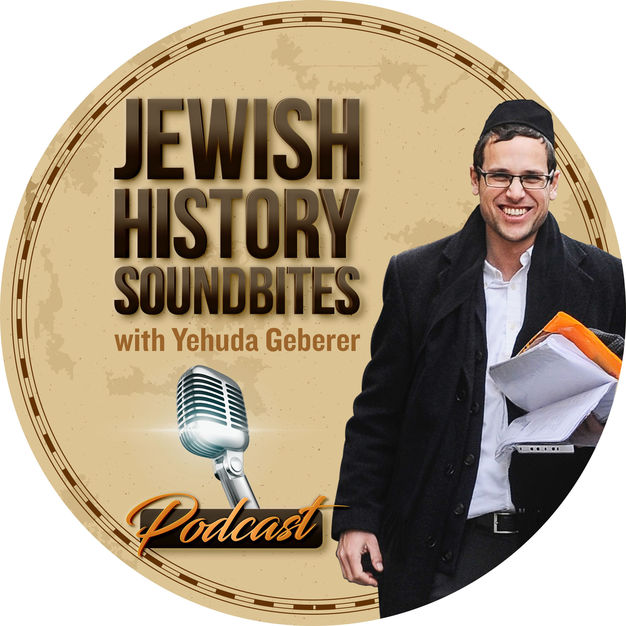
Jewish History Soundbites
Yehuda Geberer
Listen to noted Tour Guide, Lecturer and Yad Vashem Researcher of Jewish History Yehuda Geberer bring the world of pre-war Eastern Europe alive. Join in to meet the great personages, institutions and episodes of a riveting past.
- 45 minutes 40 secondsThe Maharsha
Someone whose Talmudic commentary has completely dominated Torah study for four centuries, Rav Shmuel Eliezer Aidel’s (circa 1555-1631), better known as the Maharsha, emerged as a leading rabbinical figure and teacher during the golden age of Polish Jewry in the late 16th & early 17th centuries. Financially supported by his mother in law Aidel for many years, the Maharsha was able to both teach Torah to his students, as well as author his all-encompassing commentary to both the the Halachic as well as Aggadic passages of the entire Shas. Following his mother in law’s passing, he assumed several successive rabbinical positions, before finally settling in the prominent community of Ostroh, where he remained until his passing. There he opened a yeshiva, and served the needs of the community. He also served in a broader leadership capacity within the autonomous governing council known as the Vaad Ha’arbah Aratzos – the Council of the Four Lands, recognized by the government in the old Polish Kingdom. The Maharsha’s influence on Torah scholarship remains prominent until this very day.
Cross River, a leading financial institution committed to supporting its communities, is proud to sponsor Jewish History Soundbites. As a trusted partner for individuals and businesses, Cross River understands the importance of preserving and celebrating our heritage. By sponsoring this podcast, they demonstrate their unwavering dedication to enriching the lives of the communities in which they serve. Visit Cross River at https://www.crossriver.com/
Subscribe to Jewish History Soundbites Podcast on: PodBean: https://jsoundbites.podbean.com/ or your favorite podcast platform
Follow us on LinkedIn, Twitter or Instagram at @Jsoundbites
For sponsorship opportunities about your favorite topics of Jewish history or feedback contact Yehuda at: [email protected]
18 January 2025, 5:36 pm - 44 minutes 8 secondsNaming Catastrophe: Holocaust, Shoah or Churban (Destruction)
The Nazi regime under Adolf Hitler carried out the extermination of nearly six million Jews, primarily between the years 1939-1945. How is the horrible tragedy referred to? Over the years various names and terms have been proposed, promoted, used in historiography and public discourse. By the mid 1950’s The Holocaust came to dominate in the English speaking world, while Shoah or The Shoah was already widespread even earlier in Hebrew. In academic circles the Nazi term Final Solution was often used, or alternatively Genocide, or Judeocide was sometimes used in the early years, before Holocaust or Shoah gained more widespread acceptance. Another term to refer to the Nazi murder of European Jewry was Destruction, or the Hebrew term Churban, sometimes elongated to Churban Europa. This more traditional term – which evoked imagery of the destruction of the Bais Hamikdash – was preferred in many religious circles.
What were the origins of these various term, and how did they develop in the trajectory which they did? Does it matter which term is utilized in describing this tragic chapter in Jewish history? Does the choice of name express an ideology or choose a direction of the narrative?
Link for Yehuda Geberer lectures on the Holocaust at Yeshiva Shappell’s Darche Noam:
https://open.spotify.com/show/6PGiaiQFk10ybR9dS5wWTp
https://podcasts.apple.com/us/podcast/shapells-virtual-beit-midrash/id1516601751
https://www.youtube.com/playlist?list=PLc0NeHrGWsCtlV_uVplhJa9mT2ecM0sLtCross River, a leading financial institution committed to supporting its communities, is proud to sponsor Jewish History Soundbites. As a trusted partner for individuals and businesses, Cross River understands the importance of preserving and celebrating our heritage. By sponsoring this podcast, they demonstrate their unwavering dedication to enriching the lives of the communities in which they serve. Visit Cross River at https://www.crossriver.com/
Subscribe to Jewish History Soundbites Podcast on: PodBean: https://jsoundbites.podbean.com/ or your favorite podcast platform
Follow us on LinkedIn, Twitter or Instagram at @Jsoundbites
For sponsorship opportunities about your favorite topics of Jewish history or feedback contact Yehuda at: [email protected]
11 January 2025, 6:32 pm - 44 minutes 47 secondsSephardic Purity
With the expulsion from the Iberian Peninsula in the last decade of the 15th century, the Spanish Jewish diaspora spread across the world. Jews from Spain were called Sephardim, and many of them settled in preexisting Jewish communities in North Africa and across the Mediterranean basin, the Middle East & the Balkans, primarily within the borders of the expanding Ottoman Empire. The huge influx of Sephardic Jews into these communities, overwhelmed them demographically, and the culture, customs and religious way of life of Sephardic Jewry came to dominate the region. Sephardic Jews and the preexisting local Jews integrated, and often intermarried, but at times they each chose to remain apart.
Many Spanish Jews had chosen to remain in Spain and embrace Christianity, and were referred to as Converso’s. When they or their descendants migrated from Spain to the Ottoman Empire or elsewhere, they often had a challenge reintegrating into Jewish communal life. The established Sephardic communities took pride in their own ancestors not having succumbed to the pressure to apostatize. The confluence of the above two factors led rise to a trend of Sephardic purity pride.
Cross River, a leading financial institution committed to supporting its communities, is proud to sponsor Jewish History Soundbites. As a trusted partner for individuals and businesses, Cross River understands the importance of preserving and celebrating our heritage. By sponsoring this podcast, they demonstrate their unwavering dedication to enriching the lives of the communities in which they serve. Visit Cross River at https://www.crossriver.com/
Subscribe to Jewish History Soundbites Podcast on: PodBean: https://jsoundbites.podbean.com/ or your favorite podcast platform
Follow us on LinkedIn, Twitter or Instagram at @Jsoundbites
For sponsorship opportunities about your favorite topics of Jewish history or feedback contact Yehuda at: [email protected]
4 January 2025, 4:44 pm - 43 minutes 36 secondsRav Shalom Sharabi & the Beit-El Kabbalist Yeshiva
In the center of the Jewish Quarter of the Old City of Jerusalem stands the Beit-El Yeshiva. Established nearly three centuries ago, with the lofty goal of exclusively engaging in the study of Jewish mysticism, the institution was and continues to be largely shaped by the legacy of Rav Shalom Sharabi (c.1720-1777). Known as the Rashash, as a young immigrant from Yemen in the mid-18th century, he studied in and later led the holy community of Beit-El. An innovator of Kabbalistic concepts, the Rashash not only influenced the entire study of Jewish mysticism for generations to come, he also elevated the institution which he headed to the premier institution dedicated to the study of Kabbalah. In the ensuing centuries, Beit-El would be successively led by personality’s influential in this field of study, and this storied academy would develop as an important component of the history of Yerushalayim.
Cross River, a leading financial institution committed to supporting its communities, is proud to sponsor Jewish History Soundbites. As a trusted partner for individuals and businesses, Cross River understands the importance of preserving and celebrating our heritage. By sponsoring this podcast, they demonstrate their unwavering dedication to enriching the lives of the communities in which they serve. Visit Cross River at https://www.crossriver.com/
Subscribe to Jewish History Soundbites Podcast on: PodBean: https://jsoundbites.podbean.com/ or your favorite podcast platform
Follow us on LinkedIn, Twitter or Instagram at @Jsoundbites
For sponsorship opportunities about your favorite topics of Jewish history or feedback contact Yehuda at: [email protected]
28 December 2024, 6:51 pm - 38 minutes 30 secondsAfter the Eichmann Trial
The Jewish People, Israeli society and the world at large confronted the Holocaust in the years following the Eichmann trial. Survivors began submitting testimony and writing their memoirs, historians and scholars embarked on research projects in a more systematic fashion and the Holocaust became a permanent element of the international consciousness. Hannah Arendt’s book, Eichmann in Jerusalem, generated much controversy and response. Her exploration of the ‘banality of evil’, as well as her controversial statements regarding the trial itself and Jewish leadership during the Holocaust, resulted in a slew of books, articles and general polemics to disprove many of her ideas and statements. Eichmann’s defense of ‘just following orders’, generated responses as well. From Stanley Milgram’s famous authority experiments at Yale, to Phillip Zimbardo’s Stanford prison experiment, social psychologists seemed as keen as understanding the Holocaust as much as historians.
Cross River, a leading financial institution committed to supporting its communities, is proud to sponsor Jewish History Soundbites. As a trusted partner for individuals and businesses, Cross River understands the importance of preserving and celebrating our heritage. By sponsoring this podcast, they demonstrate their unwavering dedication to enriching the lives of the communities in which they serve. Visit Cross River at https://www.crossriver.com/
Subscribe to Jewish History Soundbites Podcast on: PodBean: https://jsoundbites.podbean.com/ or your favorite podcast platform
Follow us on LinkedIn, Twitter or Instagram at @Jsoundbites
For sponsorship opportunities about your favorite topics of Jewish history or feedback contact Yehuda at: [email protected]
21 December 2024, 5:47 pm - 46 minutes 22 secondsWitnesses at the Eichmann Trial
The prosecutor at the Eichmann trial, Gideon Hausner, opened the trial with a speech to history. Evoking the memory of the Holocaust victims, and referring to them as the true accusers of Adolf Eichmann at the trial. With that speech both the dramatic atmosphere as well as the overall theme, were set for the entire ensuing trial. The over 100 witnesses took the stand not only to implicate Eichmann for his role in the Final Solution, but also to tell the world, the Jewish People and Israeli society what the Holocaust was all about. Through the often dramatic moments of witness testimony over the course of the trial, the broad scope of the Holocaust narrative was finally confronted. A clear before and after the trial was delineated in the collective memory of the Jewish People and the world at large regarding the history and memory of the Holocaust.
Cross River, a leading financial institution committed to supporting its communities, is proud to sponsor Jewish History Soundbites. As a trusted partner for individuals and businesses, Cross River understands the importance of preserving and celebrating our heritage. By sponsoring this podcast, they demonstrate their unwavering dedication to enriching the lives of the communities in which they serve. Visit Cross River at https://www.crossriver.com/
Subscribe to Jewish History Soundbites Podcast on: PodBean: https://jsoundbites.podbean.com/ or your favorite podcast platform
Follow us on LinkedIn, Twitter or Instagram at @Jsoundbites
For sponsorship opportunities about your favorite topics of Jewish history or feedback contact Yehuda at: [email protected]
14 December 2024, 4:49 pm - 42 minutesThe Eichmann Trial
The trial for former SS officer Adolf Eichmann, one of the architects of the Final Solution, which took place in Jerusalem between April – August 1961, wasn’t merely a trial for one individual and his heinous crimes. The trial showcased the story of the Holocaust and broadcast it worldwide for the world, the Jewish People and the State of Israel to confront and make part of its consciousness. Examining various aspects of the Eichmann trial and its proceedings will present a narrative of exposing the story of the Holocaust as we know it today.
Check out a previous episode of Jewish History Soundbites which dealt with the Kapo trials during the 1950’s prior to the Eichmann trial: https://jsoundbites.podbean.com/e/collaboration-or-cooperation-eliezer-greunbaum-jewish-kapos/
Cross River, a leading financial institution committed to supporting its communities, is proud to sponsor Jewish History Soundbites. As a trusted partner for individuals and businesses, Cross River understands the importance of preserving and celebrating our heritage. By sponsoring this podcast, they demonstrate their unwavering dedication to enriching the lives of the communities in which they serve. Visit Cross River at https://www.crossriver.com/
Subscribe to Jewish History Soundbites Podcast on: PodBean: https://jsoundbites.podbean.com/ or your favorite podcast platform
Follow us on LinkedIn, Twitter or Instagram at @Jsoundbites
For sponsorship opportunities about your favorite topics of Jewish history or feedback contact Yehuda at: [email protected]
7 December 2024, 8:56 pm - 38 minutes 32 secondsThe Execution of Adolf Eichmann
With the recent passing of Shalom Nagar, the former prison guard who was the executioner of Adolf Eichmann in 1962, we examine the story of the events leading up to and including his execution. While the story of his capture by Mossad agents in Argentina is dramatic and well known, the story of his appeals and attempt at receiving a pardon, as well as the symbolic ending in his execution is an important part of the story and a closing chapter in Holocaust history.
Cross River, a leading financial institution committed to supporting its communities, is proud to sponsor Jewish History Soundbites. As a trusted partner for individuals and businesses, Cross River understands the importance of preserving and celebrating our heritage. By sponsoring this podcast, they demonstrate their unwavering dedication to enriching the lives of the communities in which they serve. Visit Cross River at https://www.crossriver.com/
Subscribe to Jewish History Soundbites Podcast on: PodBean: https://jsoundbites.podbean.com/ or your favorite podcast platform
Follow us on LinkedIn, Twitter or Instagram at @Jsoundbites
For sponsorship opportunities about your favorite topics of Jewish history or feedback contact Yehuda at: [email protected]
30 November 2024, 4:50 pm - 1 hour 2 minutesJewish History Tourbites Presents - Hidden Among the Tombstones: A Walk through the Warsaw Jewish Cemetery
As the largest Jewish community in prewar Europe, Warsaw, Poland is a prime destination on many European Jewish history tours. One of the unique elements of a visit to Jewish Warsaw is a walk through its vast cemetery. Full of history, kivrei tzadikim and the rich tapestry of prewar Polish Jewry, it provides a singular perspective into a vanished world.
While the majority of tours focus on several highlights of the cemetery such as the first chief rabbi of Warsaw the Chemdas Shlomo, the mass grave of victims of the Warsaw Ghetto, the Netziv of Volozhin & Rav Chaim Brisker, the Modzhitz, Slonim & Radomsk Rebbes, etc., there is really so much more there than meets the eye. This episode will explore some of the less frequently visited personalities and memorials of the Warsaw cemetery, including other prominent Warsaw rabbis such as Rav Avraham Tzvi Perlmutter, many other Chassidic leaders such as the Biala, Vorka, Radzymin, Amshinov, Radzyn, Pilov, Sokolov and other rebbes, cultural and political aspects of prewar Warsaw such as the Yiddish writers, Yiddish theater, the Bund, Judenrat head Adam Czerniakow, and much much more. Get ready for an urban lively journey through a historic cemetery!
Cross River, a leading financial institution committed to supporting its communities, is proud to sponsor Jewish History Soundbites. As a trusted partner for individuals and businesses, Cross River understands the importance of preserving and celebrating our heritage. By sponsoring this podcast, they demonstrate their unwavering dedication to enriching the lives of the communities in which they serve. Visit Cross River at https://www.crossriver.com/
Subscribe to Jewish History Soundbites Podcast on: PodBean: https://jsoundbites.podbean.com/ or your favorite podcast platform
Follow us on LinkedIn, Twitter or Instagram at @Jsoundbites
For sponsorship opportunities about your favorite topics of Jewish history or feedback contact Yehuda at: [email protected]
23 November 2024, 9:41 pm - 46 minutes 15 secondsMeet the Metz: The Jews of Metz
Metz, France was host to one of the most prominent Jewish communities in the world at one point in history. An ancient Jewish community, it experienced a flourishing during medieval times before the Jews were expelled in 1365. Jewish settlement was again permitted in the mid-16th century and from 1648 following the Peace of Westphalia until the French Revolution in 1789, Metz experienced a golden age for its Jewish community. As one of the wealthiest Jewish communities in the world during this time, it attracted prestigious rabbinical talent with some of the greatest rabbis of the 18th century having served at its helm, including the Pnei Yehoshua, Rav Yonasan Eybuschitz, the Shaagas Aryeh and many others. It also funded a large yeshiva, and the town itself enjoyed demographic and economic growth. Following the French Revolution, the Metz community continued to thrive, but not as a center that it once was. Although much of the Metz Jewish community was decimated during the Holocaust, it was rebuilt and the Metz Jewish community continues to flourish until this very day.
Cross River, a leading financial institution committed to supporting its communities, is proud to sponsor Jewish History Soundbites. As a trusted partner for individuals and businesses, Cross River understands the importance of preserving and celebrating our heritage. By sponsoring this podcast, they demonstrate their unwavering dedication to enriching the lives of the communities in which they serve. Visit Cross River at https://www.crossriver.com/
Subscribe to Jewish History Soundbites Podcast on: PodBean: https://jsoundbites.podbean.com/ or your favorite podcast platform
Follow us on LinkedIn, Twitter or Instagram at @Jsoundbites
For sponsorship opportunities about your favorite topics of Jewish history or feedback contact Yehuda at: [email protected]
16 November 2024, 4:38 pm - 50 minutes 52 secondsThe Life & Times of Rav Yaakov Ettlinger the Aruch Lener
Germany Jewry of the 19th century was going through a period of transition. Emancipation was a struggle which was incrementally achieved, and rampant secularization and integration into German society followed. The rise of Orthodoxy was an attempt to preserve tradition within the modern context. Rav Yaakov Ettlinger (1798-1871) was a pioneering leader in this regard. Known by his magnum opus, Aruch Lener, he served as the rabbi of Altona for 35 years and was one of the most influential leaders of German Orthodoxy during the 19th century. His life, times and accomplishments are a fascinating and important chapter of Jewish history in modern times.
Cross River, a leading financial institution committed to supporting its communities, is proud to sponsor Jewish History Soundbites. As a trusted partner for individuals and businesses, Cross River understands the importance of preserving and celebrating our heritage. By sponsoring this podcast, they demonstrate their unwavering dedication to enriching the lives of the communities in which they serve. Visit Cross River at https://www.crossriver.com/
Subscribe to Jewish History Soundbites Podcast on: PodBean: https://jsoundbites.podbean.com/ or your favorite podcast platform
Follow us on LinkedIn, Twitter or Instagram at @Jsoundbites
For sponsorship opportunities about your favorite topics of Jewish history or feedback contact Yehuda at: [email protected]
9 November 2024, 5:09 pm - More Episodes? Get the App
Your feedback is valuable to us. Should you encounter any bugs, glitches, lack of functionality or other problems, please email us on [email protected] or join Moon.FM Telegram Group where you can talk directly to the dev team who are happy to answer any queries.
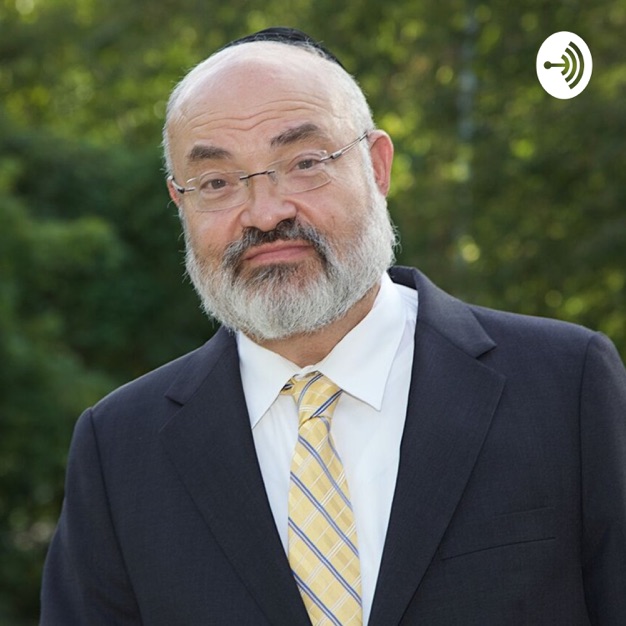 Jewish History with Rabbi Dr. Dovid Katz
Jewish History with Rabbi Dr. Dovid Katz
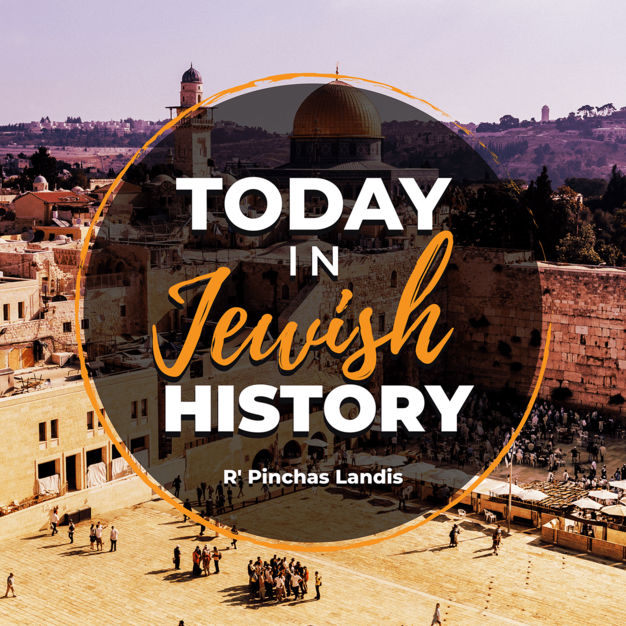 Today In Jewish History
Today In Jewish History
 Shuaros (Talks, Classes, Shiurim)
Shuaros (Talks, Classes, Shiurim)
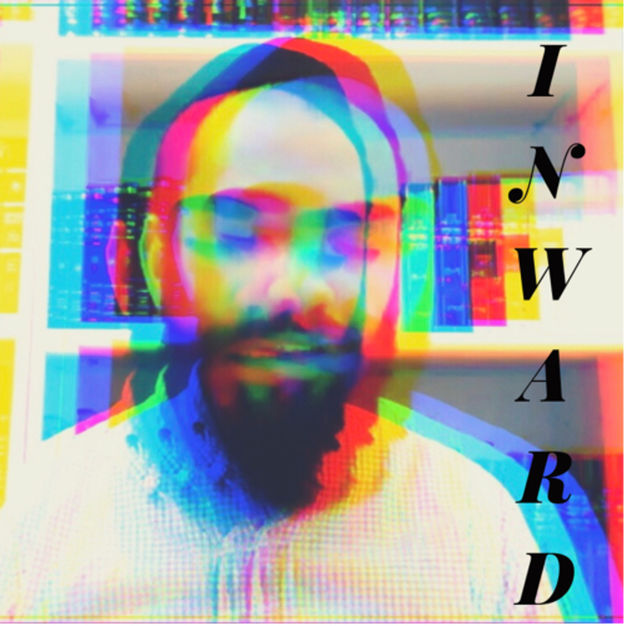 Inward with Rabbi Joey Rosenfeld
Inward with Rabbi Joey Rosenfeld
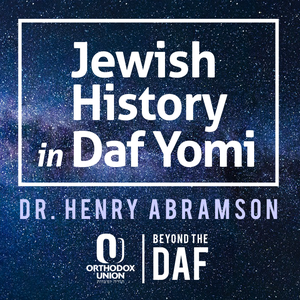 Jewish History in Daf Yomi
Jewish History in Daf Yomi